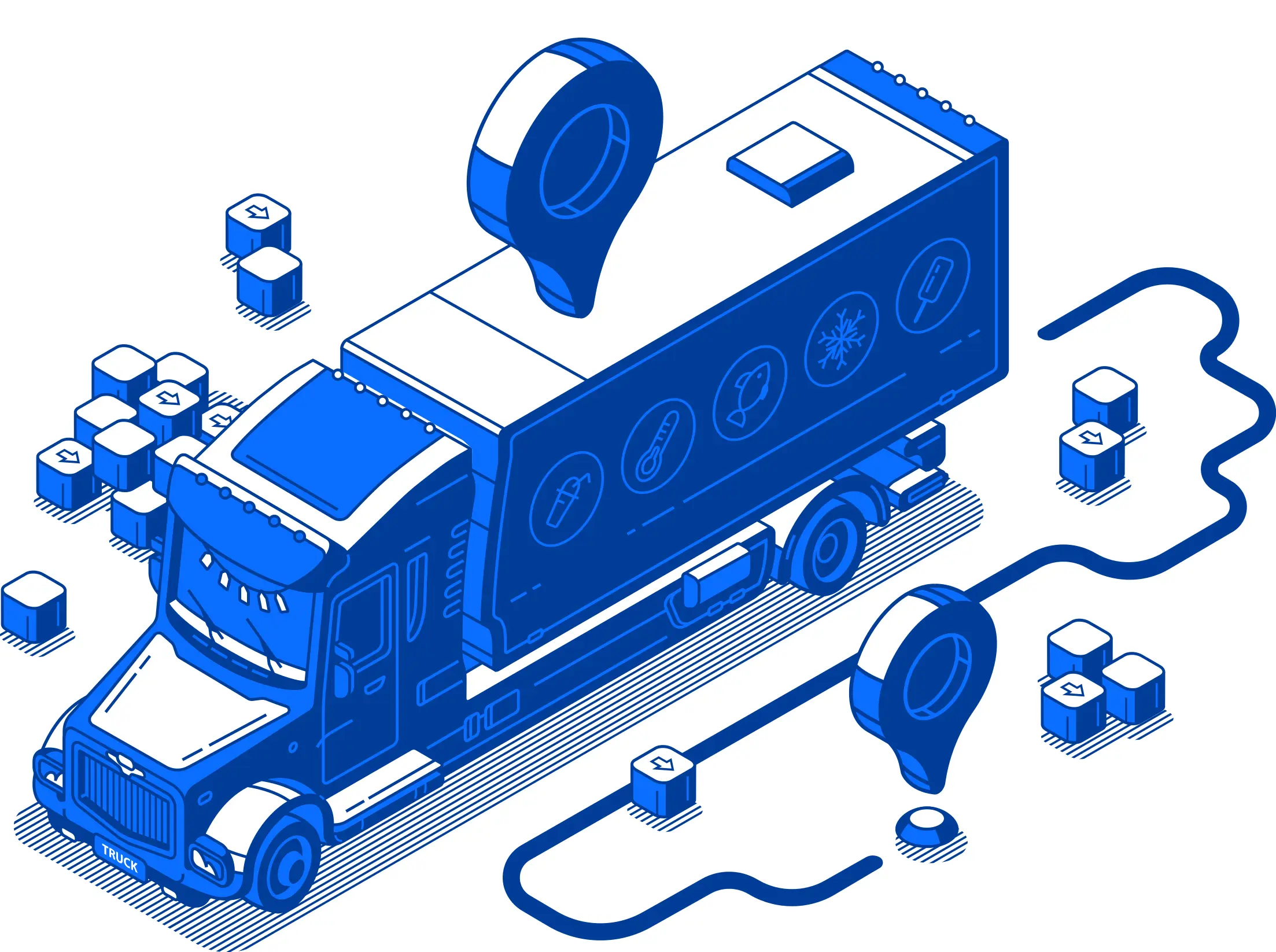Starting in 2024, the federal government requires most trucking companies to use electronic logging devices (ELDs). These devices record a driver’s hours of service automatically and eliminate the need for manual logs with pen and paper.
ELDs record location, hours an engine is on, and how far a vehicle travels in terms of movement and distance. This report is then sent in real-time to fleet management software. The government uses it to ensure drivers and trucking companies are not violating labor laws and Federal Motor Carrier Safety Administration rules.
A handful of companies do not have to comply. The exceptions are:
Agricultural truck drivers who are hauling feed, livestock, or horticultural products within 172.6 land miles.
Covered farm vehicles that haul farm equipment, providing the trip is to or from a ranch and are driven by a farm owner, family member, or employee.
Drivers who are driving a vehicle being delivered or transporting an RV or motorhome.
Drivers who are not on the road more than eight days per month.
Short-haul drivers who don’t travel more than 172.6 land miles.
Truck drivers who are hauling emergency fuel.
Trucks that are designed to transport more than 15 passengers without payment, including the driver.
Trucks that are designed to transport more than 9 passengers with payment, including the driver.
Trucks that transport hazardous materials.
Trucks that weigh less than 10,001 pounds (gross weight, too).
Trucks that were manufactured before 2000.
What the ELD Mandate Means in Terms of Company Finances
The 2024 ELD mandate is costly to some trucking companies. In addition to the device, there is a monthly subscription fee that ranges from $20 or more. Some companies provide free ELDs with a subscription, but those subscriptions run upwards of $80 a month.
The devices alone range in price from around $150 to $500 each. If you have 10 trucks, that’s an upfront cost of as much as $5,000 straight away plus the monthly fee for each device. If you have a monthly fee of $25, that’s $250 per month for each truck. With the $5,000 for the devices and another $250 per month, you’ve spent $8,000 in the first year. It’s expensive.
How Does Freight Factoring Help?
Freight factoring is a service where you sell your unpaid invoice to a factoring company for immediate payment. Instead of waiting weeks or months for your clients to pay you what’s owed, you pay a small fee and get paid as quickly as that same day.
It works like this. Say you’ve signed a contract where the freight factoring fee is 3% and you get 90% upfront. Your client owes you $30,000, but you don’t want to wait a full month. You want the money now. Send that bill of lading to a freight factoring company. They deduct a fee of 3% ($900) from the amount you’re owed.
That brings the amount owed to $29,100. You can have 90% right now, which means you receive $26,190. Once your client pays the invoice, the remaining $2,910 is released.
That enables you to pay the fees associated with the new ELD mandate. It’s a lot less expensive than continually relying on a credit card where the average interest rate is currently 20.53% (October 4, 2024).
Be Strategic When Choosing a Freight Factoring Partner
The nation has dozens of freight factoring partners, and not every company is going to be the right fit for your needs. You need to be strategic.
Get Prices in Writing
Ask if there is a fee schedule you can look over. Every factoring arrangement is customized to match a business’s needs, but you should be able to get an idea of what the fees are in different circumstances. For example, if you have 10 trucks in your fleet what’s the factoring rate? What if you have one or two trucks?
Are there fees you could face in certain circumstances? If your client pays three days after the due date, will you pay a penalty for each day it’s overdue? If you have a slow month and only have 10 jobs completed instead of the usual 30, will you be dinged for having a lack of invoices? It’s important to learn about these fees in advance.
Learn More About Add-On Services
Many freight factoring companies provide additional services like fuel discounts. If you could save money on every tank you fill, isn’t it worth it? Compare fuel discounts when you’re negotiating a freight factoring arrangement.
Another popular service is a business debit card. Instead of having drivers head out with an office debit or credit card, they could each have their own business card to use for things you allow, such as drinks, meals, lodging, and fuel. With the right card, you control what purchases are allowed and what is prohibited.
Would a business line of credit help you grow your business and cover emergency expenses? Look for a freight factoring company like Saint John Capital, which offers low-interest lines of credit for trucking companies.
Read Reviews
Read as many reviews of the trucking company as you can. As you do, remember two things. First, people are more likely to leave a review after a bad experience than after a good one. Second, how a business responds is vital.
One negative review we often see involves a customer’s failure to read and understand a freight factoring contract. If you take out a business line of credit and don’t have enough of a business credit history, a bank may ask to see a personal credit history. If you ask for a fuel advance, you can’t go and submit a payment request that doesn’t account for that fuel advance.
Another issue is something the federal government is cracking down on. If one customer is unhappy, they may ask friends and family to leave fake reviews to bring down their review rating. Check the username to see if it’s a legitimate business as much as you can.
You must understand what you’re signing. If you’re not sure, do not sign and hope for the best. Get clarification. Ask an attorney specializing in contract law if you need additional guidance.
See if You Have to Factor Every Invoice
Many trucking companies have long-time business relationships with their brokers and shippers. Those companies are trusted and pay on time, and you’d rather keep billing them as you always have. It’s worth considering that there are companies shutting down without notice. Some companies show signs that they’re struggling, but other closures are shocking.
You need to carefully weigh whether you have to factor every invoice you have or if you can pick or choose. Are you willing to take on the lost money if a client abruptly closes without paying your last round of invoices? With a non-recourse arrangement, you don’t have to take the financial loss.
Saint John Capital helps its customers grow their business with an array of beneficial services. We’re up-to-date on the 2024 mandate and are ready to help you get the money you need to meet the new regulations. Learn more about freight factoring arrangements online or over the phone.











